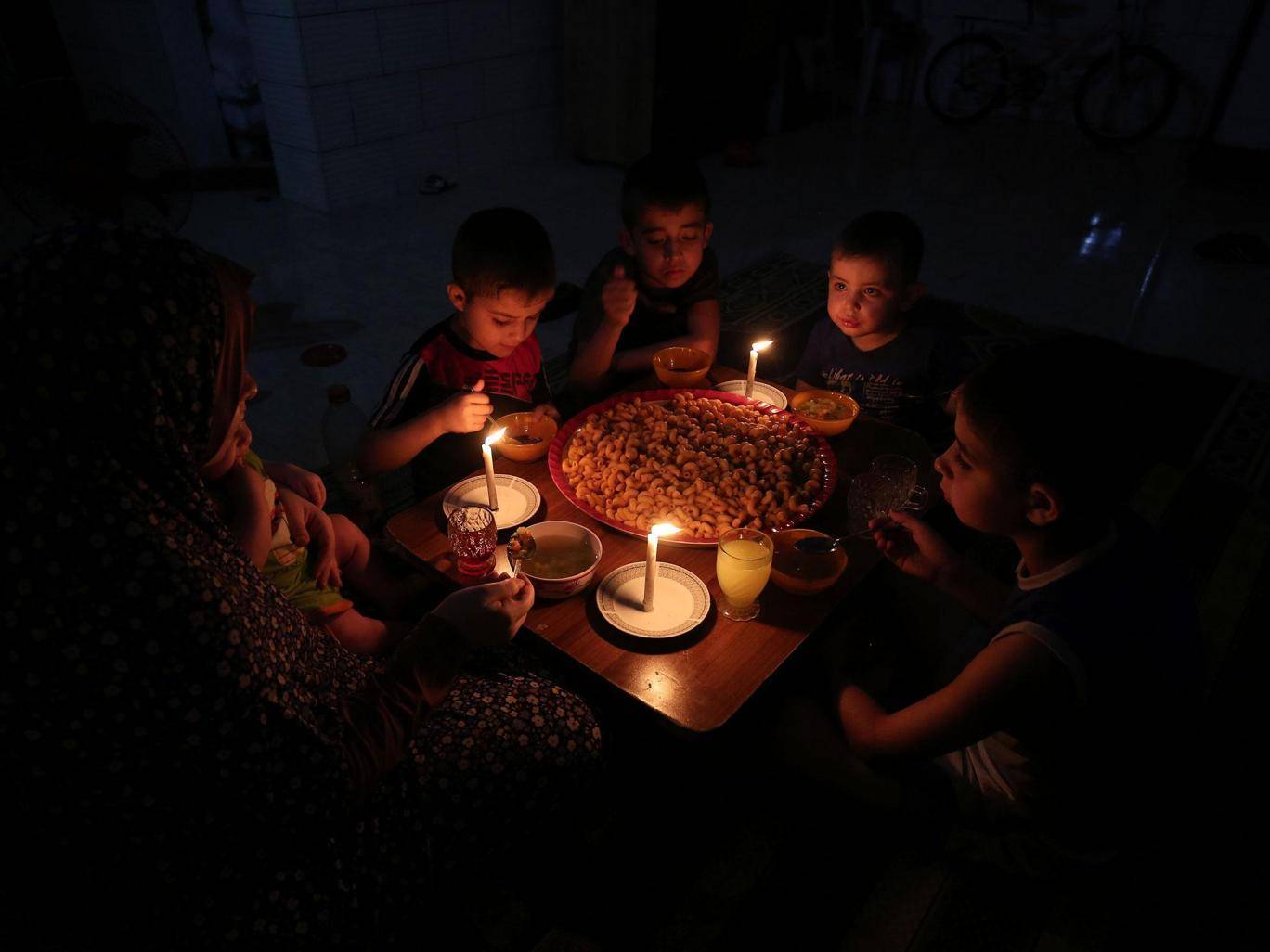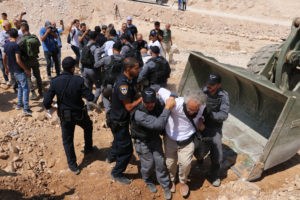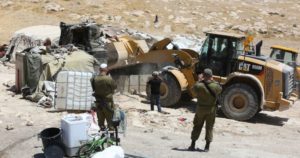Gaza, MINA – Residents of the Gaza Strip (2 million people) are spending Ramadan this year without electricity, making their living conditions worse as the economic situation deteriorate year after year.
Electricity reaches homes of Gazans at best four hours a day, compared to 20 hours cut in hot and dry Ramadan weather.
The electricity crisis began in the Gaza Strip in 2006 after Israeli warplanes bombed the only power generating plant and then multiplied as the 11-year-old Israeli blockade intensified.
With the start of the holy fast month of Ramadan on Thursday, Gazans eat their “sohour” (pre-fast dawn meal) and Iftar (breaking the fast meat at sunset) without electricity, which compounded their suffering.
Also Read: UNRWA: 90% of Gaza’s Population Depends on Humanitarian Aid Amid Israeli Restrictions
“For 12 years we have lived in suffering and crises; no electricity, no clean water, no work, Gaza is in a state of clinical death,” Hassan Qassem, from Sheikh Radwan neighborhood in Gaza City, told WAFA.
The well off in Gaza resort to large generators to light their homes at a cost of a little over $1 per kilowatt of electricity, while the cost of one kilowatt of electricity at the generating plant after it was rebuilt and became partially operating is a little over 10 cents.
The poor and the destitute, however, are forced to eat their meals by candlelight or battery operating torches.
“We are deprived at home – especially my children – of watching TV shows that we eagerly wait for during the holy month,” Qassem said.
Also Read: Two Million Israelis Face Looming Mental Health Crisis Amid Gaza War
Absent as well this Ramadan is the lanterns that add joy to the Gazans, especially children, which are nowadays too expensive to buy, let alone light.
Ramadan is more difficult this year due to the brutal Israeli attacks on unarmed civilians taking part in peaceful popular protests at the eastern border of the Gaza Strip, which resulted so far in the Israeli killing of more than 100 people and the injury of thousands, including children and women.
Gaza entering a stage of clinical death
Also Read: US-Backed Gaza Aid Group Ends Mission Amid Controversy Over Delivery and Safety
The purchasing power of Gazans fell by half because of shortage of cash money with people, which forced many shops to close after suffering heavy losses.
“The Gaza Strip is not actually on the verge of collapse, but it is entering a stage of clinical death,” said economist Maher Tabbaa. “It has become the largest open air prison in the world.”
He continunued, “The month of Ramadan comes as the markets are experiencing a state of recession and economic stagnation in all activities, most importantly the commercial sector, which suffers from weak sales due to the low purchasing capability of employees. Shoppers are absent the market is almost deserted.”
Walking through the market one could see the economic recession as he hears shop owners complain about the difficult economic situation they are going through.
Also Read: Israel Allows Only One-Third of Agreed Aid Trucks Into Gaza
One of the vendors at the vegetable market at Shati refugee camp told WAFA that he is unable to pay the rent for his shop or even pay the municipality fees.
“The situation is very difficult, and shoppers have cut down on their expenditure by half … they are buying only the very necessary goods,” he said.
The unemployment rate in the Gaza Strip is 49.1% during the first quarter of this year, and the number of unemployed during the same period has reached 255,000 people.
Household food insecurity rate was 72%, as was the lack of purchasing power, while revenues decreased by 15% during the same period.
Also Read: Israeli Occupation Army Kills Four More Gazans in New Ceasefire Violation
Tabbaa pointed out that more than one million people receive aid from the United Nations Relief and Works Agency for Palestine refugees (UNRWA) and international and Arab relief organizations operating in the Gaza Strip.(R/R04/RS5)
Mi’raj News Agency (MINA)
Also Read: Hamas Delegation Discusses Israeli Ceasefire Violations in Cairo Meeting

































 Mina Indonesia
Mina Indonesia Mina Arabic
Mina Arabic